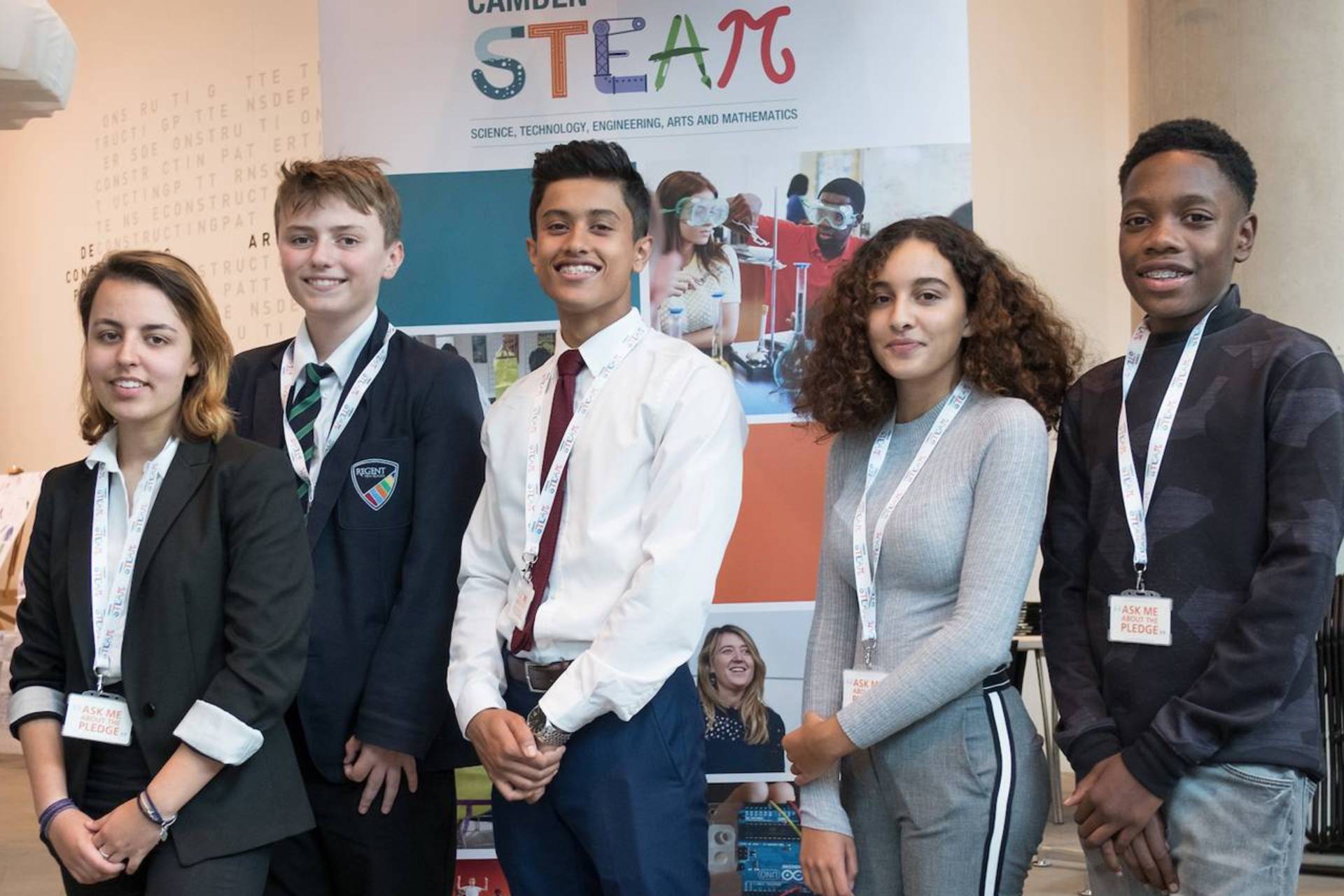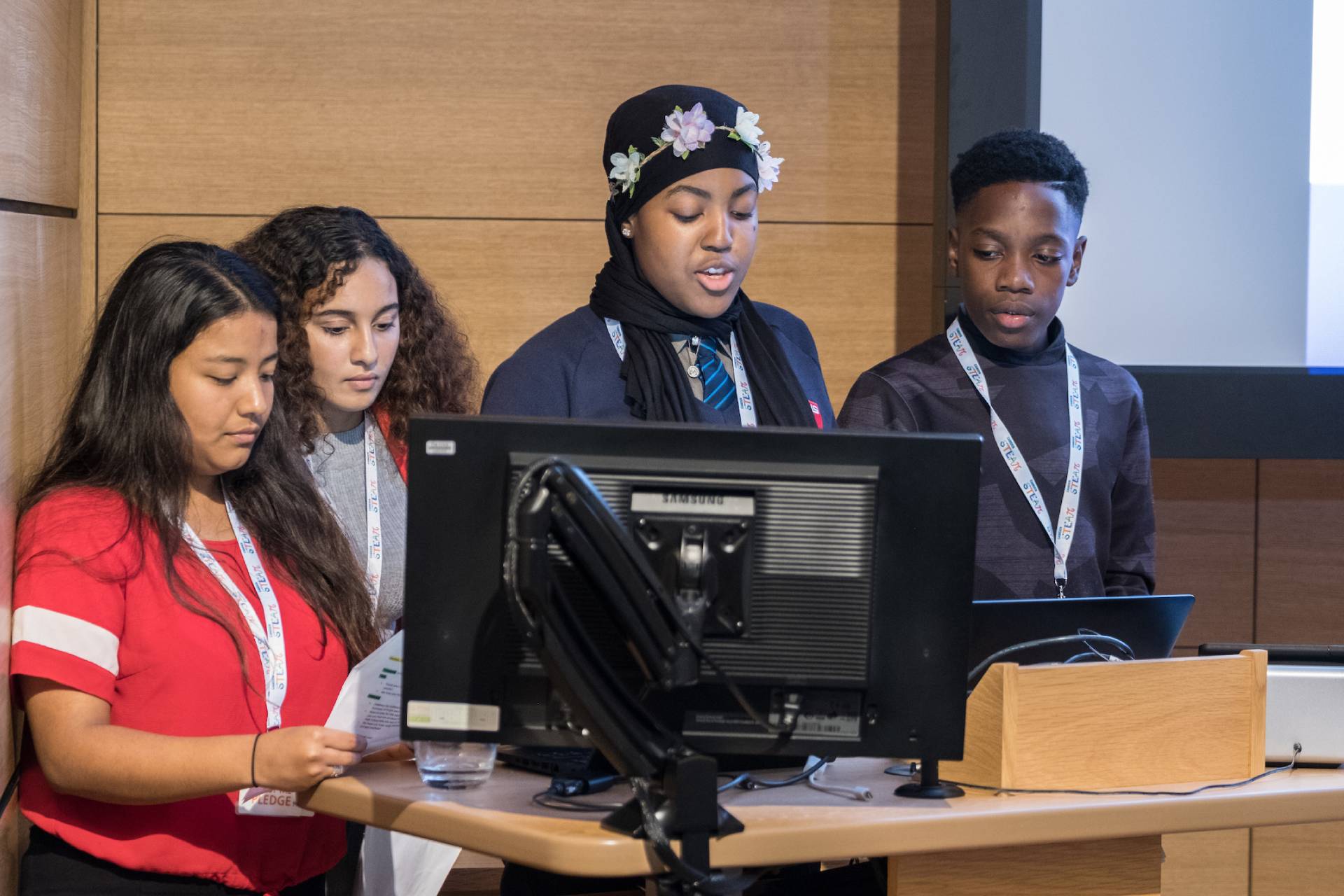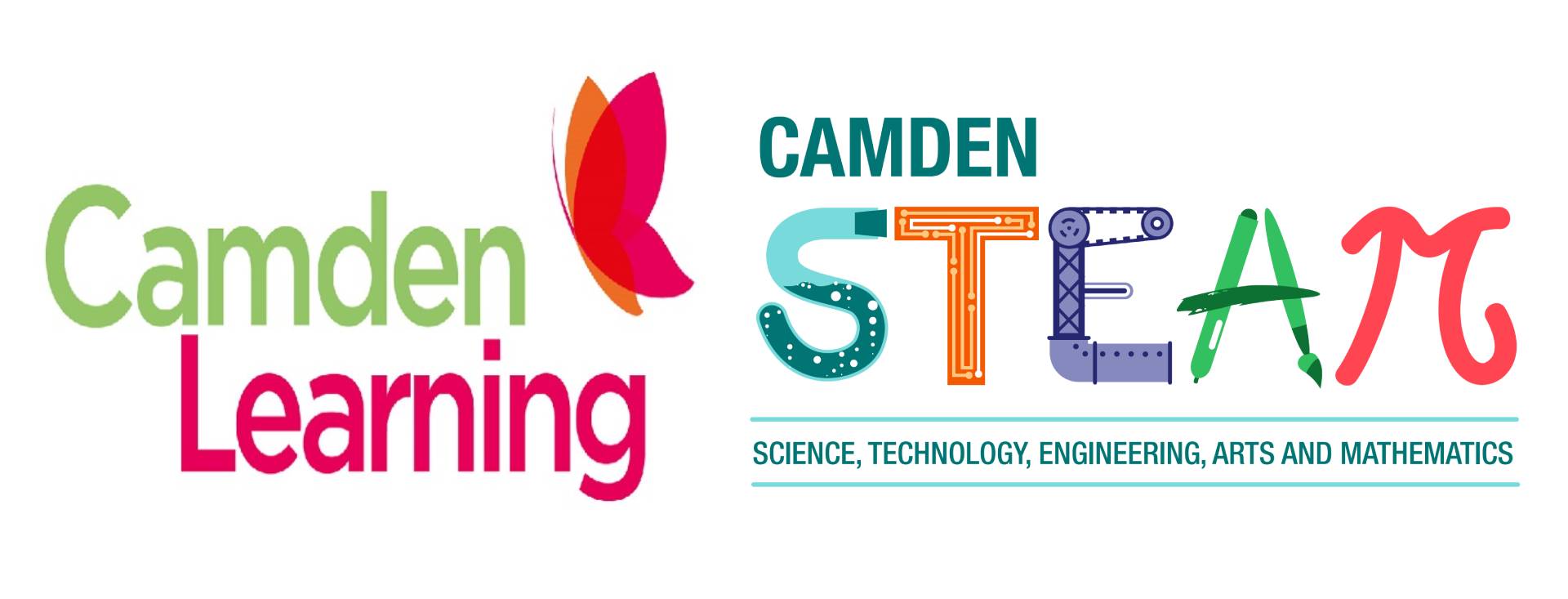In response to the first COVID-19 lockdown, Camden Council’s STEAM (Science, Technology, Engineering, Arts and Maths) programme team developed a Virtual Work Experience programme, which spans Years 11 to 13 at Camden schools. These placements, the first of their kind delivered by a local authority in the UK, were designed in close collaboration between nine local employers: Camden Council, Central Saint Martins, Costain Skanska, Francis Crick Institute, Google, HS2, Regent’s Place, Skanska and Springer Nature.
We spoke to Google’s Head of Creative Strategy Amy Brown and Rubina Iqbal who works in Community Engagement about running virtual work experience.

Response to the idea within the company was enthusiastic, as Amy explains, “There were a lot of Googlers who were wondering what they could do to be helpful, looking for local volunteering opportunities, particularly around COVID-19.” The selected mentors reflect the diversity of roles at Google. Amy says they had a variety of people such as “engineers, PR and comms, a head of security. They have different backgrounds, whether it had been university, the military, or they worked straight out of school and worked their way up”.
Rubina, who grew up in Camden, jumped at the chance to get involved as a mentor. “Growing up, I was very lucky to have great mentors, it was so valuable for me. I’m a Camden girl, I was born and raised here, so it was nice to give back to a community that has been very good to me,” she says.
“I’m a Camden girl, I was born and raised here so it was nice to give back to a community that has been very good to me.”
Rubina Iqbal, Community Engagement at Google and VWEX mentor
Setting students real world challenges
The goal of the Virtual Work Experience programme was to give students some training as well as insight into the world of work and a range of specific industries. Google work collaboratively, so they set up a project that involved students working as part of a team. As Amy explains, “Our challenge this year was ‘design a retail unit that would be of value to you and your community’. Office workers are pretty well catered for. The group that is least catered for in the new developments around King’s Cross is probably the people that live there. For us, it was a great opportunity to learn from young people who are growing up in the area.”
Students had three sessions a day with mentors to check in, get feedback and ask questions. Organisations such as Camden Think & Do also helped run workshops. Amy says, “They were absolutely amazing, really good interaction and bringing young people out of their shell.”
Getting started with virtual work experience posed some challenges. Rubina says, “It’s one thing to know how to use digital products, but there’s a whole confidence piece too. A lot of students were very shy, nervous to say something, it took them a while to get used to being on camera. It has made me very conscious of how we do digital skills education.” Also home circumstances can be an issue, as Amy explains, “Some of them are caring for younger siblings, they have lots going on. We wanted to be really mindful of that.”
However, once the students were engaged and trust was built, the ideas started flowing. Rubina says, “I was really inspired by how positive the young people were, and how much they really wanted to do something helpful for their community. It was great to see them actually really advocate for where they live, and really come back with innovative, and very forward-thinking ideas.”
“I was really inspired by how positive the young people were, and how much they really wanted to do something helpful for their community.”
Rubina Iqbal, Community Engagement at Google and VWEX mentor
“Even in a pandemic, when situations are really hard, they were so civic-minded. One of the groups pitched the idea of having a community space and they had thought about how it would affect their grandparents, families and younger children. It was very much looking at the community as a whole, making sure that it’s accessible, making sure that there are things for older people to do.”
The Virtual Work Experience programme culminated in a submission of each group’s idea, devised to make it feel as close to a real work situation as possible, with a judging panel consisting of people from the Roundhouse, Koko Foundation, Doc Martens, Argent and Google. Amy explains, “Whether it’s a slide presentation, whether it’s a video, it gave it that sense of credibility at the end that the work has been looked at.” Thought was also put into what the students could share after their work experience. “We gave them a pack at the end with prompts to share things on LinkedIn or something to add to their CV,” she adds.

Virtual Work Experience is a success
Google has now hosted two years of virtual work experience, and are planning to work even closer with Camden schools for future sessions. Both teachers and students have shown interest in more virtual work experience placements in the future as it allows forgreater numbers of placements and may be more accessible for disabled students.
Kate Barry, Assistant Principal Curriculum and Leadership development at UCL Academy, says, “We were delighted that the Camden Learning STEAM virtual work experience offer meant so many more of our students could experience such high quality work placements. Students came back with such positive feedback and we particularly noticed an improvement in their breadth or knowledge about large organisations and the many career opportunities that exist within them. It was lovely to see our students feeling so connected to the inspiring global employers based in Camden and seeing these as local opportunities for their future.”
A key success of Camden’s Virtual Work Experience programme was its wide reach. 41% of participating students were on Pupil Premium – funding to improve education outcomes for disadvantaged pupils and 57% were from a Black, Asian or other ethnic minority background. Additionally, 81% of students who participated did not have placements lined up before the COVID-19 crisis began.

For Rubina, the potential of virtual work experience could lie in taking it further afield. “Whether it’s towns or rural communities, maybe you’re beholden to the work experience opportunities that are physically near you. What can we do for people who are not near the businesses in the physical sense but still want exposure? I think it’s so important to democratise tech in that way.”
Holding work experience virtually might have started off as a challenge, but as Rubina explains, there are plenty of opportunities. “This has opened our eyes to what else can you do besides taking a young person and sticking them in an office for five days,” she says. This is a sentiment echoed by Amy. “Because it had to be virtual, I believe that we did something better than we would have done otherwise. It forced us to be really organised.”
How to get involved
Watch our 21st Century Talent Pledge video to find out more about Camden’s STEAM programme. You can also visit the Camden STEAM website to find out more about the programme, join CPD sessions for schools and read accounts from young people on the programme.
If you’re an employer and you’re interested in getting involved, just email steampledge@camden.gov.uk for more details.
